Related Research Articles

Herr Gott, dich loben wir, BWV 16, is a church cantata for New Year's Day by Johann Sebastian Bach. It was first performed on 1 January 1726 in Leipzig, as part of the composer's third cantata cycle. Its libretto is by Georg Christian Lehms, opening with the beginning of "Herr Gott, dich loben wir", Luther's German Te Deum. The cantata's text was completed with a stanza from Paul Eber's "Helft mir Gotts Güte preisen" for the closing chorale.

Christoph Prégardien is a German lyric tenor whose career is closely associated with the roles in Mozart operas, as well as performances of Lieder, oratorio roles, and Baroque music. He is well known for his performances and recordings of the Evangelist roles in Bach's St John Passion and St Matthew Passion.
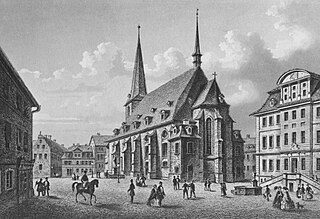
Der Himmel lacht! Die Erde jubilieret, BWV 31, is a church cantata by Johann Sebastian Bach for the first day of Easter. Bach composed the cantata in Weimar and first performed it on 21 April 1715.

Herr, gehe nicht ins Gericht mit deinem Knecht, BWV 105 is a church cantata by Johann Sebastian Bach. He composed it in Leipzig for the ninth Sunday after Trinity and first performed it on 25 July 1723. The musicologist Alfred Dürr has described the cantata as one of "the most sublime descriptions of the soul in baroque and Christian art".
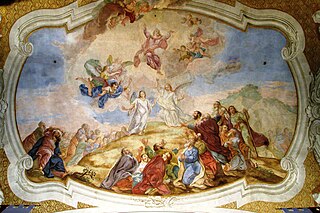
Gott fähret auf mit Jauchzen, BWV 43, is a church cantata by Johann Sebastian Bach. He composed it in Leipzig for the Feast of the Ascension and first performed it on 30 May 1726. It begins with a quotation from Psalm 47.
Peter Kooij is a Dutch bass singer who specializes in baroque music.
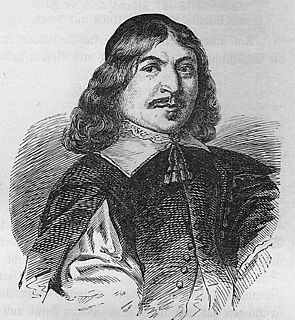
Johann Sebastian Bach composed the church cantata Wer nur den lieben Gott läßt walten, BWV 93 in Leipzig for the fifth Sunday after Trinity and first performed it on 9 July 1724. He based the chorale cantata on the hymn of the same title by Georg Neumark (1657). It is part of his chorale cantata cycle.
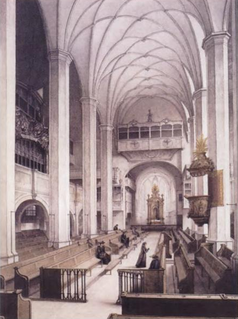
Johann Sebastian Bach composed the church cantata Herr, deine Augen sehen nach dem Glauben, BWV 102 in Leipzig for the tenth Sunday after Trinity and it was first performed on 25 August 1726.
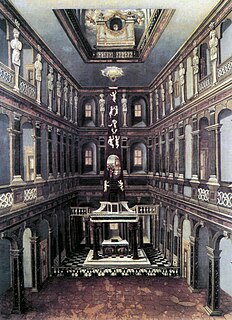
Wachet! betet! betet! wachet! is the title of two church cantatas by Johann Sebastian Bach. He composed a first version, BWV 70a, in Weimar for the second Sunday in Advent of 1716 and expanded it in 1723 in Leipzig to BWV 70, a cantata in two parts for the 26th Sunday after Trinity.

Selig ist der Mann, BWV 57, is a church cantata by Johann Sebastian Bach. He wrote the Christmas cantata in Leipzig in 1725 for the Second Day of Christmas, which was celebrated that year as St. Stephen's Day, and first performed it on 26 December 1725.

Himmelskönig, sei willkommen, BWV 182, is a church cantata by Johann Sebastian Bach. He composed it in Weimar for Palm Sunday, and first performed it on 25 March 1714, which was also the feast of the Annunciation that year.

Ein Herz, das seinen Jesum lebend weiß , BWV 134, is a church cantata for Easter by Johann Sebastian Bach. Bach composed the cantata for the third day of Easter in Leipzig and first performed it on 11 April 1724. He based it on his congratulatory cantata Die Zeit, die Tag und Jahre macht, BWV 134a, first performed in Köthen on 1 January 1719.

Ich bin ein guter Hirt, BWV 85, is a church cantata by Johann Sebastian Bach. He composed it in Leipzig for the second Sunday after Easter and first performed it on 15 April 1725.
Van der Velden is a Dutch toponymic surname meaning "from the fields". In 2007, there were over 10,000 people with this name in The Netherlands. Among variations on this name are Vandervelden, Vander Velden, Van de Velden, Van den Velden, Van der Velde, Van de Velde, Vandervelde, Vandevelde, and Van Velden. Notable people with the surname include:
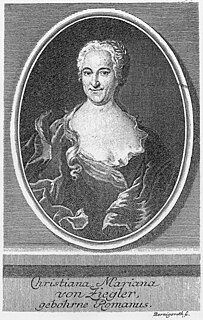
Also hat Gott die Welt geliebt, BWV 68, is a cantata by Johann Sebastian Bach, a church cantata for the second day of Pentecost. Bach composed the cantata in Leipzig and first performed it on 21 May 1725. It is one of nine cantatas on texts by Christiana Mariana von Ziegler, which Bach composed at the end of his second annual cycle of cantatas in Leipzig. In a unique structure among Bach's church cantatas, it begins with a chorale and ends with a complex choral movement on a quotation from the Gospel of John. Bach derived the two arias from his Hunting Cantata.
Hana Blažíková is a Czech soprano and harpist. She is focused on Medieval, Renaissance and Baroque music, appearing internationally. She has recorded as a member of the Bach Collegium Japan, among many others.

Tritt auf die Glaubensbahn, BWV 152, is a church cantata by Johann Sebastian Bach. He composed this dialogue cantata in Weimar for the Sunday after Christmas and first performed it on 30 December 1714.

Peter Dijkstra is a Dutch conductor, especially of choirs and vocal ensembles.
Vox Luminis are a Belgian early music vocal ensemble led by Lionel Meunier. Their recording of Heinrich Schütz's Musicalische Exequien for Ricercar won a Gramophone Award and International Classical Music Awards (ICMA) in 2012.
Bach composed Wie schön leuchtet der Morgenstern, BWV 1, as chorale cantata for the Marian feast of the Annunciation, for a first performance in a church service in Leipzig on 25 March 1725. The cantata, for soprano, tenor and bass soloists, four-part choir and Baroque orchestra, takes around 25 minutes to perform.
References
- ↑ J. van der Klis -Een tuitje in de aardkorst: kroniek van de oude muziek 2007 Page 466 "Dat gold inderdaad ook voor concerten van L'Armonia Sonora onder leiding van Mieneke van der Velden"
- ↑ BBC Music Magazine -2007 Volume 15, Issues 7-13 - Page 65 "German Sacred Cantatas Peter Kooij L'Armonia Sonora Miencke van der Velden »Strongly commended for performance, recording and documentation alike. "